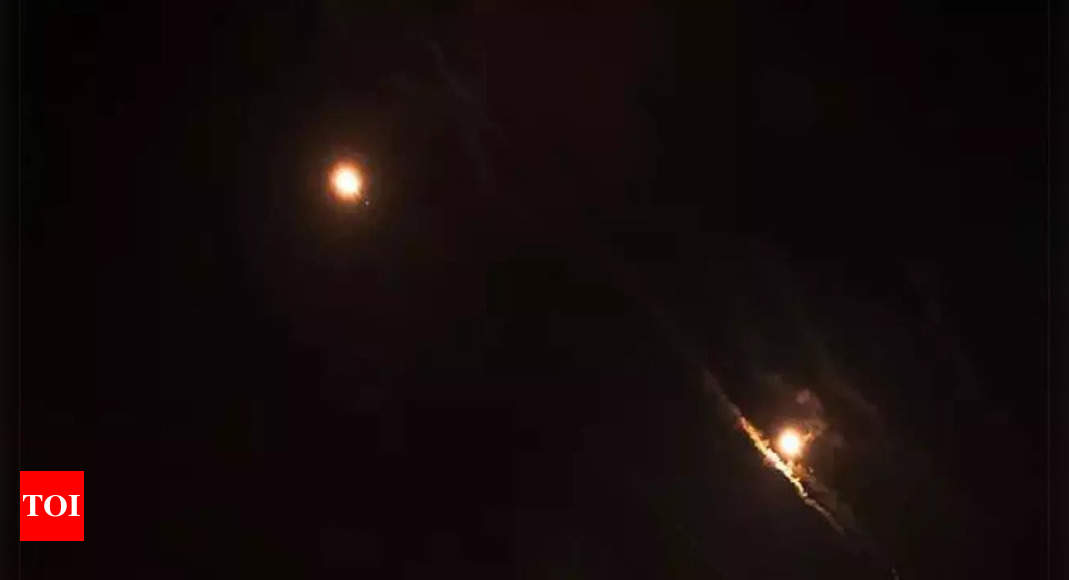Advertisement
MAIDUGURI/ABUJA: An airstrike on a village in Nigeria‘s northwestern Zamfara state killed at least 33 people last week, four residents and a traditional leader said, after a military operation targeting armed kidnapping gangs and their hideouts.
The incident, on April 10, is the latest in a pattern of deadly aerial assaults by the military that have killed civilians and were the subject of a special Reuters report last year.
The military said on Thursday the airstrikes had eliminated armed gangs, known locally as bandits, in several locations in Zamfara, including Maradun local government area.
But Lawali Ango, the traditional head of Dogon Daji village in Maradun, told Reuters there were no bandits in his area of mainly Muslim Zamfara.
Ango said he was away from his village on April 10, preparing for Eid prayers marking the end of the Muslim fasting month of Ramadan at around 0700 GMT when he saw aircraft passing. This was followed by loud explosions.
When he tried to contact his village, the calls did not go through and he and a group of men raced back home on motorbikes.
“Arriving at the scene, I saw children, men and women … were killed and trapped inside the collapsed buildings that were hit by a bomb,” Ango said by phone, adding that 33 people had been killed.
“They (the military) are saying the bandits escaped and sought hideouts in our village. I swear there is nothing like this, I can go anywhere and confirm this to the world.”
Nigerian Defence Headquarters spokesperson Major General Edward Buba denied civilians had been killed or targeted and said airstrikes were carried out only after careful intelligence and surveillance.
“Accordingly, the strikes were conducted on terrorist(s) and not civilians,” Buba said in a text message. He provided no death toll.
Last December, a military drone strike killed at least 85 people in northern Kaduna, an incident the military said it would investigate. In January, the Nigerian Air Force accepted for the first time its responsibility for an airstrike that killed dozens of civilians a year ago.
Roar of jets and loud blasts
Surajo Abubakar, a farmer, said he heard the roar of jets in the sky just in the morning, followed by blasts.
He lost two wives and five children, he said.
“I lost seven people in my family, and in all about 33 dead bodies were counted,” said Abubakar, whose third wife was not in the village during the airstrike.
Abu Waziri, who lives next to Dogon Daji, said he went to investigate after hearing loud explosions and was shocked by what he saw.
He said he saw victims’ remains on the ground and added: “We managed to be patient and put the body parts together and prayed for them and buried them.”
Two other residents also said civilians were killed.
Beyond the war zone in the northeast, the military has been called on to tackle the growing threat in Nigeria’s northwest and central region posed by armed criminal gangs that spray villages with bullets and carry out mass kidnappings.
The incident, on April 10, is the latest in a pattern of deadly aerial assaults by the military that have killed civilians and were the subject of a special Reuters report last year.
The military said on Thursday the airstrikes had eliminated armed gangs, known locally as bandits, in several locations in Zamfara, including Maradun local government area.
But Lawali Ango, the traditional head of Dogon Daji village in Maradun, told Reuters there were no bandits in his area of mainly Muslim Zamfara.
Ango said he was away from his village on April 10, preparing for Eid prayers marking the end of the Muslim fasting month of Ramadan at around 0700 GMT when he saw aircraft passing. This was followed by loud explosions.
When he tried to contact his village, the calls did not go through and he and a group of men raced back home on motorbikes.
“Arriving at the scene, I saw children, men and women … were killed and trapped inside the collapsed buildings that were hit by a bomb,” Ango said by phone, adding that 33 people had been killed.
“They (the military) are saying the bandits escaped and sought hideouts in our village. I swear there is nothing like this, I can go anywhere and confirm this to the world.”
Nigerian Defence Headquarters spokesperson Major General Edward Buba denied civilians had been killed or targeted and said airstrikes were carried out only after careful intelligence and surveillance.
“Accordingly, the strikes were conducted on terrorist(s) and not civilians,” Buba said in a text message. He provided no death toll.
Last December, a military drone strike killed at least 85 people in northern Kaduna, an incident the military said it would investigate. In January, the Nigerian Air Force accepted for the first time its responsibility for an airstrike that killed dozens of civilians a year ago.
Roar of jets and loud blasts
Surajo Abubakar, a farmer, said he heard the roar of jets in the sky just in the morning, followed by blasts.
He lost two wives and five children, he said.
“I lost seven people in my family, and in all about 33 dead bodies were counted,” said Abubakar, whose third wife was not in the village during the airstrike.
Abu Waziri, who lives next to Dogon Daji, said he went to investigate after hearing loud explosions and was shocked by what he saw.
He said he saw victims’ remains on the ground and added: “We managed to be patient and put the body parts together and prayed for them and buried them.”
Two other residents also said civilians were killed.
Beyond the war zone in the northeast, the military has been called on to tackle the growing threat in Nigeria’s northwest and central region posed by armed criminal gangs that spray villages with bullets and carry out mass kidnappings.

